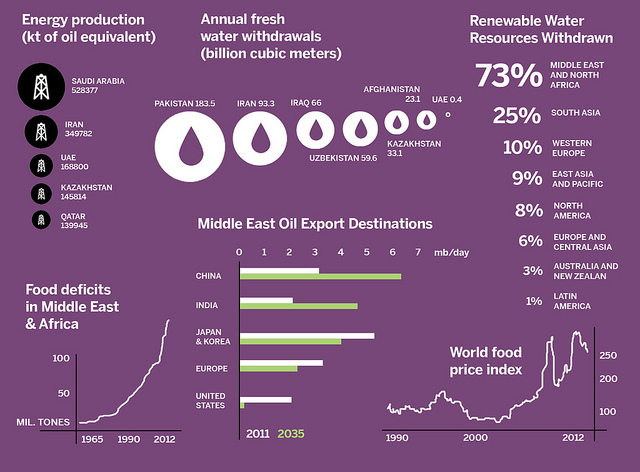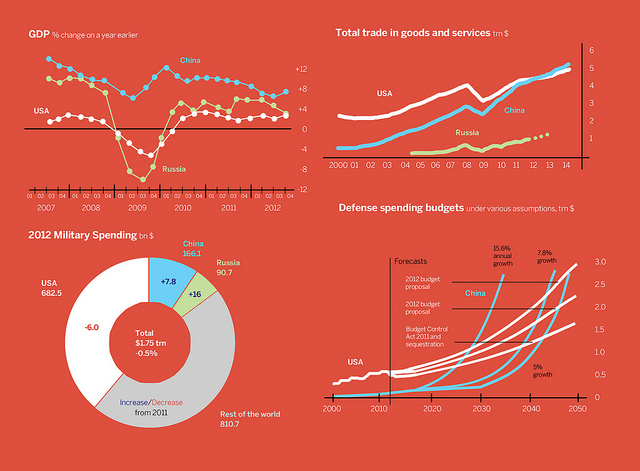The debate about whether Islamist or secular parties could better guarantee a smooth transition to stable and democratic governance was central to the entire meeting. Some participants argued that discussing ideologies and their compatibility with democracy is a futile exercise since “people are interested in programs and results, not in ideologies,” while others countered that “one cannot discuss transition to democratic, rights-respecting governance without discussing the relation between religion and the state.”
The political dynamic in countries in transition is also marked by the contrast between institutional politics versus “street politics,” and by large generation gaps. Using mainly social media outlets, youth activists wield a new kind of power. Incoming leaderships are often fragmented and inexperienced, or project a sense of inclusion of people with differing views.
Many participants expressed concerns about the security and economic situations of several countries in the region. The deteriorating security environment, terrorism (in Libya, Tunisia, and Egypt) and sectarian violence continue to pose a threat to both political and economic stability.
The regional economies are facing rising public debt, inflation and unemployment, particularly among educated youth-—all of which pose difficult challenges for these countries already burdened by a volatile and fragile political environments. “Newly elected governments did not come with a new economic model,” a participant explained. Wary of taking risks while they are managing the political transition, new leaders have delayed key economic reforms, such as reducing state subsidies. The question was raised whether new economic governance can really be postponed much longer: after all, the populations of these countries expect not only more political participation but also more concrete results towards economic stability.
Participants noted a trust deficit between the EU and North African countries undergoing transition. This is attributed to Western support for former regimes, the EU’s domestic concerns at its southern neighborhood, and, more recently, the backlash triggered by the flow of refugees from North Africa. Most participants contended that the EU should take a proactive strategic approach to the region. This would mean offering cooperation in areas of capacity building, promoting the rule of law, and reforming the police, judiciary and the economy. The latter would include reforming the fiscal system, subsidies and the energy sector in particular. These are key areas for security, political stability and economic recovery for countries in transition.
The transition process that began in Tunisia since 2011 will continue for years to come. Despite many setbacks, participants pointed to noteworthy achievements in a relatively short period of time: new constitutions drafted; empowerment of women in public life; and a qualitative and quantitative development of civil society organizations. In addition, unions and syndicates for trade, laborers, lawyers and journalists have emerged. There is also a growing free press, which allows for the possibility of public criticism of political elites and the continued efforts to support national dialogues in Libya, Tunisia and Yemen.
Civil Society Organizations
Since 2011, the number of civil society organizations has grown dramatically, particularly in Egypt, Tunisia and Libya. In some countries, these organizations have nearly doubled in number. Tunisia has witnessed the creation of 5,000 new civil society organizations in less than two years. In Libya, 3,000 new organizations emerged since the fall of Qaddafi.
Civil society organizations are also taking on a broader range of issues. They are debating new topics that used to be considered taboo under the old regimes, such as corruption, gender equality, women’s rights, and the rights and freedoms of ethnic and religious minorities.
Civil society organizations had a crucial role in leading the protests on the streets of Tunisia, Egypt and Libya, and they are now equally important in implementing the longed-for reforms, having become “a real partner and a real force of objection,” as one participant put it. The current roles of civil society organizations in Tunisia and Egypt demonstrate a noteworthy difference. In Tunisia, syndicates, labor unions, the League of Human Rights, the law and bar association, and the Tunisian General Labor Union (UGTT) played a key role in brokering a dialogue between the opposition and the government. In Egypt, conversely, civil society and human rights organizations have been marginalized in the public debate following the demise of President Mubarak. Moreover, many political parties, including often conservative ones, have used human rights jargon in an attempt to project a liberal, democratic image. More importantly, debates on human rights, civil liberties and freedoms often spark conflicts with the more conservative ruling parties, renewing the age-old debate on the compatibility Islam with democracy.
In Egypt, Tunisia and Libya, a significant number of civil society organizations are led by young motivated leaders with little management experience. They lack the capacities to fully represent and advocate their organizations’ concerns at the political level. This has an impact on politics, since many parties look to these young leaders, hoping they will become the face of the popular revolutionary movements.
Many of the civil society organizations in Egypt, Tunisia and Libya often find themselves in the midst of regional powers’ polarization. In Tunisia for example, the reform of the legal and political framework regarding the establishment and funding of civil society organizations is quite liberal and allows for foreign funding to be directly channeled to civil society. While this is helpful for the growth and development of needed civil society, it also allows the politicization of money for various political agendas.
Economic Challenges
While “there is no political transition without economic reform, and vice versa,” there can be no economic reform without security reforms either. Since 2011, for example, five consecutive Tunisian governments with no clear political agenda have negatively impacted the economy, discouraged the business community and scared away foreign investors. Furthermore, a decline in tourism has worsened an economy hammered by rising unemployment, inflation and a banking system on the brink of collapse. Tunisia could be heading for a major economic crisis.
A report published by E3G and the EastWest Institute, presented during the consultation, points out that a decline in living standards is one of the most important factors leading to instability. There is a high risk of instability driven by persistent youth unemployment, regional and social inequalities, dependence on low-value and underperforming sectors, harmful exposure to global food and energy price shocks and strong competition from emerging economies. Moreover, given worsening fiscal balances caused by lower exports, high energy prices and food subsidy payments, net oil and food importers have ever-fewer resources to buffer these risks. MENA economies face significant constraints on growth due to shortages of energy and water, which is further exacerbated by climate risks.
Energy markets and energy subsidies require new attention. Growing populations will increase demand for energy, particularly for oil and gas that are still the main resources consumed. Energy subsidies based on actual consumption reward and promote consumption indiscriminately; they need to be reduced to cut public spending, while still protecting the poorer population. The energy mix also needs to be diversified and must include renewables energy.
Conclusions and Recommendations
1. The EU should engage in strategic partnerships with the countries in transition in Europe’s southern neighborhood at diplomatic, economic and social levels. Medium and long-term support for key areas of capacity and institution building, rule of law, education and economic governance should be provided.
Building on the its experience as a model for regional integration, the EU should provide advice and assistance to North Africa on how to move forward with its political transition to encourage reconstruction and regional integration.
In economic terms, the Free Trade Agreements between the EU and North African countries should be reassessed to give countries in transition better access to EU markets—both for products and for people. If North African economies will prosper, the EU will benefit as well.
2. The role of civil society organizations has been crucial during and after the elections in countries in transition. Their young leaders and representatives need to develop their leadership capabilities, expertise in conflict and project management and public standing. Partnerships with academia could provide support.
3. Civil society organizations rely heavily on foreign funding, which can be beneficial but also provides ample opportunity for misuse and for regional polarization. Transparency in the financial and legal frameworks is essential for better monitoring of foreign funding to civil society.
4. A call was made for an Arab-Arab learning process on transition to democratic governance in North Africa, as there is almost no exchange among civil society organizations, parties and relevant voices within the region. Participants believed that it is possible to set up such inter-regional dialogue that includes political leaders, parliamentarians and civil society organizations.
5. Knowledge of and experience in trust-building and mediation processes are weak in the MENA region. Training Arabic-speaking facilitators for national dialogue processes would be useful.
6. Governments in countries in transition should overcome old divides and seek to form public-private partnerships with the business sector to benefit the economy and the population, e.g. by cooperating in the field of education, vocational training and promotion of young entrepreneurs.
7. There is a crucial need for fiscal reform, banking reform and reform of government subsidies, notably in the energy sector. Energy subsidies in Egypt and Tunisia have failed to alleviate expenses for the poorer communities. They drive consumption and increase public debt. From an economic and a social perspective, subsidies need to be reduced and to be directed to those who need them most. Governments of countries in transition have feared initiating such reforms, which require public discourse and broad public and political support to avoid clashes and crises.
8. The MENA region depends mainly on oil and gas with no renewables; there is a critical need to address the energy mix in the MENA region through the diversification of energy resources and more efficient consumption. As the water-food-energy nexus will affect the MENA region—with water shortages, higher food prices (due to climate change), growing energy consumption and prices—policy makers should not only seek to promote higher growth rates but also economic resilience, providing protection against shocks. This could be a topic for regional cooperation.
9. Natural resources management in the Eastern Mediterranean involving Egypt, Israel, Lebanon, Palestine, Syria, Cyprus and Turkey could provide a good opportunity to encourage regional cooperation, sustainable exploitation and the establishment of an inter-regional market.



